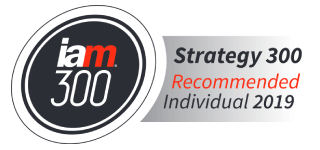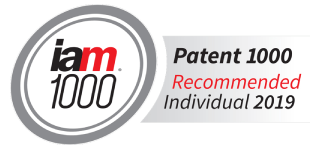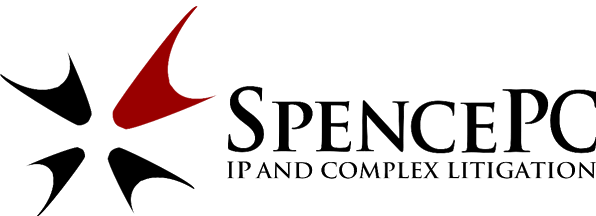Services
Practice Areas
Why SpencePC?
Clients choose SpencePC because we do outstanding work for fair compensation. Unlike our competitors, we encourage the use of alternative-fee agreements that more closely align our clients’ interests with the Firm’s interests. As a result, our clients pay only for the value they receive.
Our Philosophy
Our philosophy is simple: be outstanding and offer a unique value proposition. Hourly billing creates the wrong incentive for attorneys to work longer, not smarter. Instead, we encourage alternative-fee arrangements that reward success and efficiency. By doing so, our attorneys remain focused on obtaining the best results for our clients in the most cost-efficient manner.
Our Skills
We are attorneys who specialize in intellectual property and complex litigation. We hold science, engineering, and law degrees from the nation’s top schools. Following our education, each of us received years of additional training from prestigious, top-tier law firms. Our billing model ensures we remain focused on obtaining the best results in the most cost-efficient manner.
Associations & Accolades
Winding Down the Start-Up – IP Considerations
By Jason Wejnert, William Cory Spence and Laura Shapiro
Starting a small business and maintaining it through good and bad times is an enormous challenge in any era. Today, with the COVID-19 pandemic rampaging across the world and shuttering employment nationwide in the U.S., this stark truth is even more apparent. When owners face the difficult decision to wind down a start-up, there are important choices and strategies that one must consider, especially regarding leveraging and protecting assets such as intellectual property that the business generated.
It is certainly old news and accepted wisdom that startups face an uphill battle to survive over the years. We’re often told that half of all startups fail within their first five years. In reality, the number is more sobering. In a Small Business Administration study of firms formed in 1998, only 44% were still around only four years later. [1] 70% of startups won’t live to see their 10th birthday. [2] Along with challenges that are organic and perennial, like access to talent, performance of staff, trade policies and technologies shifts and revenue and funding issues, there is now both a global shutdown in business and the difficulties of remote work, for business where that is available.
Historical data shows that economic disruptions strongly affect new firm opening and closure rates negatively [3]. There were 64,318 business bankruptcy filings in calendar year 2008, compared to 28,322 in calendar year 2007, according to figures provided by Jupiter eSources, LLC’s Automated Access to Court Electronic Records. [4] Further, 18,000 small business bankruptcy cases were filed between 2008 and 2015 [5]. Even years after the Great Recession, new firm formations were still lackluster:
| Starts and Closures of Employer Firms | |||
| Category | 2008 | 2009 | 2014 |
| New Firms | 626,400 | 552,600 | 514,332 e |
| Closures | 663,900 | 660,900 | 548,159 e |
| Bankruptcies | 43,546 | 60,837 | 55,250 e |
| Sources: U.S. Dept. of Commerce, Bureau of the Census; Administrative Office of the U.S. Courts; U.S. Dept of Labor, Employment and Training Administration. |
Startup founders often have obligations to many stakeholders, including family, employees, investors, and perhaps customers. So, when forced to face the reality of their business’s failure or mothballing, owners have a responsibility to these groups to optimize the process of exiting. This begins with understanding the various paths available to make the process as smooth and successful as possible to open the door for future ventures or maintaining good ties with potential investors. While communication with stakeholders is paramount in these considerations, often overlooked is the identification and disposition of intellectual property (“IP”) assets, including how these assets and licenses may be treated in bankruptcy. SpencePC can assist you in identifying these IP assets and monetizing them immediately.
Funding
Aside from another round of venture capital or angel investors taking a stake in your start-up, you could consider IP funders who provide capital for funding patent and trademark prosecution, and IP litigation funding. Such funders evaluate the nature and strength of the IP, whether currently owned by the company or speculative, and negotiate a loan or investment in the outcome of the litigation. Some loans are non-recourse – meaning, that if the litigation fails, the funder cannot collect on the loan. However, funders often seek terms that may not be appealing to a business owner, such as processing costs and high demands for returns on their investment, commensurate with the risk involved. Nonetheless, if you and an IP litigation funder determine there is a viable IP lawsuit to bring forward, this may help to keep the company afloat and attract investors to keep the start-up alive.
Examples of IP funders include Cardinal Consultants, Burford Capital, GLS Capital and Pravati Capital. SpencePC works with several IP funders and can provide connections to assist you in starting discussions. Keep in mind that these negotiations can take some time and may involve discussions with a few funders depending on the size and nature of the IP you wish to assert.
SpencePC has access to an extensive network of funders and the expertise to guide you through the difficult process of evaluating funders and getting you in touch with the right funder so you can get the most value for your assets or IP claims.
Selling and Brokering IP
Another option for small business and start-up owners is to consider selling their IP, whether trademarks, patents or copyrights, to another party. For instance, if a competitor is only interested in the technology you have developed, including, perhaps any patents, you can sell them your IP. There are companies that do nothing but buy patents and you can check with them too. But your technology doesn’t have to be patented to have significant value – other IP, trade secrets and important data compilations can be of value to a buyer.
Along with an outright assignment and transfer to another party, such as selling to a competitor or other interested party, there is a ripe market of IP brokers who contract with sellers to identify potentially interested parties who may either purchase the IP or take a stake in monetizing the IP, whether through a licensing or litigation campaign involving the IP.
A business owner may see advantages in offloading the “prospecting” process by letting a third party use its connections in the market to connect said business owner with a buyer or stakeholder. Again, keep in mind that these connections and transactions have costs associated with them, including a percentage of any sale or monetization of the IP involved. Careful evaluation of these terms is required. Examples of IP brokers include Ocean Tomo (an intellectual property merchant bank that provides financial products and services, including expert testimony, valuation, research, ratings, investments, risk management, and transactions), Iceberg IP Group and Dynamic IP LLC. In addition, some companies seek to purchase IP assets and use them in their own businesses, whether offensively or defensively. A robust market of entities exists in this area, such as Intellectual Ventures, Fortress and RPX. Also, Google has a program that buys patents (https://www.google.com/patents/licensing). As with any complex transaction, a start-up owner should engage IP counsel to consider the ramifications of any deal and get the best possible outcome. SpencePC attorneys have a long history of working with clients to evaluate agreements and negotiate deals, licenses and settlements to maximize the value a client can receive for their assets. Even in difficult and uncertain times, IP has a high value, whether patents, trademarks, copyrights, trade secrets or other intangible assets that are often overlooked. SpencePC can review your company’s asset list and work together to ensure a maximal value for the company.
IP and Bankruptcy
The third way that an IP owner can protect their property could be through bankruptcy. Bankruptcy is the court proceeding in which assets and liabilities are examined to determine whether debts should be discharged or restructured. There are three different chapters of bankruptcy: Chapter 7, Chapter 11 and Chapter 13. Chapter 7 is the most common type of bankruptcy and is set aside for individuals, partnerships or corporations. Chapter 7 allows an elimination of unsecured debts by the surrender of assets through liquidation. Liquidation is the sale of assets to pay what is owed to creditors. Chapter 11 bankruptcy is a reorganization effort or a plan to restructure assets to repay creditors over time. Chapter 11 is typically reserved for business owners. Chapter 13 bankruptcy is normally used by individuals or sole proprietors and involves the creation of a repayment plan to pay back all or a portion of creditor debts over three to five years. The difference between Chapter 11 and Chapter 13 bankruptcy is that Chapter 11 is open to any individual or business without specific income or debt-level limits, whereas Chapter 13 requires a stable income and requires debt limits [6].
What entices parties to declare bankruptcy is the automatic stay that is invoked upon the date of the bankruptcy filing, no matter the chapter under which the filing was made. The automatic stay means that most collection calls and creditor actions stop, and therefore, the petitioner of bankruptcy no longer need fear demand of outstanding payments. It is important to note that the automatic stay does not usually apply to post-petition patent infringement (i.e. petitions made after the filing of bankruptcy). Instead, these post-petition claims are considered “administrative” and are usually paid in full [7].
While the automatic stay can protect petitioners of bankruptcy, bankruptcy often negatively affects intellectual property rights though the rights of secured creditors and licensees. Under Bankruptcy Code, an IP license is generally considered an “executory contract”, meaning that performance remains due on the part of both the party seeking bankruptcy and the creditor or licensee. Failure to perform on either end thereby would constitute a material breach. The party seeking bankruptcy (or, the “licensor”) has four options when handling their IP licenses: (1) rejection of the license; (2) assumption of the license; (3) assumption of the license and assignment to a third party [8] ; or (4) sale of the IP free and clear of creditor interest [9].
If the licensor decides to reject the license, the rejection will be treated typically as a breach of the license as of the date of the bankruptcy license, meaning the licensee will have a pre-petition claim in the bankruptcy case if any damages result from the breach. It is important to note that upon rejection, a licensee may elect to terminate the license or retain its rights to the license. If the license elects to retain its rights, the licensor is required to provide the licensee with the IP and allow the licensee to exercise all of its rights under the license for the duration of the license so long as both parties have been determined to have materially unperformed obligations [10]. The licensee, upon election, waives its setoff rights and any administrative claims it may have in the licensor’s bankruptcy case [11]. Trademarks are not included as intellectual property under the Bankruptcy Code. Still, a recent 2019 case discussing trademarks, Mission Products Holdings, Inc. v. Tempnology, LLC , held that rejection of a trademark license agreement does not “deprive the licensee of its rights to use the trademark.” [12] This means that a trademark licensor in bankruptcy can no longer cut off a licensee’s rights to continue using trademarks. Further, rejection of a trademark license only impairs the value of trademarks and therefore, a licensor should be wary before rejection [13].
If the licensor decides to assume the license, they then must (1) cure the license of all its defaults or provide adequate assurance that it will promptly cure defaults; (2) provide compensation of any actual pecuniary loss as a result of any defaults; and (3) demonstrate an ability to perform in the future under the license [14].
If the licensor chooses to assume the license and assign it to a third party, it is important to note that non-exclusive licenses are non-assignable unless the patent owner consents. Although this is usually true for exclusive licenses as well, there have been times where exclusive licenses have had the ability to be assigned without the patent owner’s consent [15].
If the licensor chooses to sell their IP rights free and clear of creditor interest, then the bankruptcy court must first approve of the transaction. The standard by which the judge decides on the sale is whether or not the sale is “fair and equitable”, and whether (1) applicable non-bankruptcy law permits the sale and (2a) everyone with an interest in the property consents or (2b) the interest in the IP is a lien and the sale price of the IP is greater than the value of all liens against it [16]. This means that the sale must be within the reasonable range of litigation possibilities should the sale have taken place outside the bankruptcy court. Four factors are used to determine whether the sale is reasonable: (1) the probability of the sale’s success in litigation; (2) difficulties either party may have in collection of the sale; (3) complexity of litigation involved and expense, inconvenience and delay necessarily attending it; and (4) the paramount interest of the creditors [17].
While bankruptcy may appear as an intimidating concept at first, it is an important tool used by IP holders. Bankruptcy can be used to either preserve IP licenses with licensees and creditors or as a way for IP creators to request relief from licenses through rejection of contracts or through the sale of the IP. It is important to note that every decision an IP holder makes in bankruptcy is important from deciding which chapter of bankruptcy to file under through the strategy an IP holder will choose when handling their various IP licenses. Securing counsel who are well-equipped in Bankruptcy Code is the best way in which an IP holder can navigate bankruptcy proceedings. SpencePC can assist you in identifying your company’s assets and connect you with the right counsel to work together to make sure you get the most value and protection for your assets.
Conclusion
Contemplating winding down your start-up is never an easy decision, especially after all the effort, ingenuity, pride, perseverance and investment of capital and emotions into the company. However, sometimes that is the right decision for yourself and your stakeholders, including your employees. If you have any questions about this article or IP questions in general, please feel free to contact us at SpencePC. Further, if you are considering protecting your IP at any stage of your company, we at SpencePC are happy to discuss both current and future options with you.
[2] https://www.smallbizgenius.net/by-the-numbers/startup-statistics/
[3] https://www.caycon.com/what-kills-startups
[5] https://www.theguardian.com/business/2019/sep/08/us-small-businesses-bankruptcy-trump-reorganization-act
[6] www.credit.com/debt/filing-for-bankruptcy-difference-between-chapters-7-11-13/.
[7] corporate.findlaw.com/intellectual-property/protecting-your-rights-to-intellectual-property-in-bankrupcy.html.
[8] Id.
[9] www.jonesday.com/en/insights/2010/04/the-impact-of-bankruptcy-on-ip-litigation-and-licensing.
[10] Id.
[11] corporate.findlaw.com/intellectual-property/protecting-your-rights-to-intellectual-property-in-bankrupcy.html.
[12] www.millercanfield.com/resources-Trademark-Bankruptcy-Mission-Product-Holdings-Tempnology.html.
[13] corporate.findlaw.com/intellectual-property/protecting-your-rights-to-intellectual-property-in-bankrupcy.html.
[14] Id.
[15] www.jonesday.com/en/insights/2010/04/the-impact-of-bankruptcy-on-ip-litigation-and-licensing.
[16] www.wardandsmith.com/articles/intellectual-property-in-bankruptcy-an-overview.
[17] www.jonesday.com/en/insights/2010/04/the-impact-of-bankruptcy-on-ip-litigation-and-licensing.
The post Winding Down the Start-Up – IP Considerations appeared first on SpencePC.











